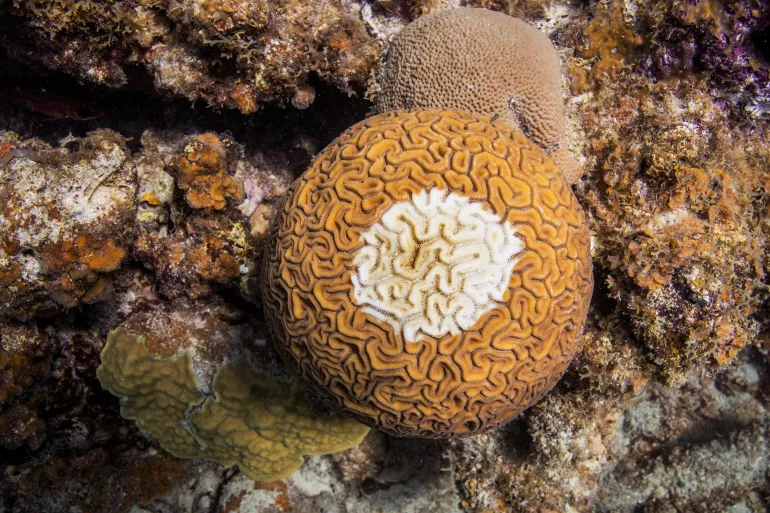
Faith Nyasuguta
Coral reefs worldwide are undergoing a perilous transformation, with coastlines from Australia to Kenya to Mexico witnessing a haunting spectacle as vibrant reefs turn ghostly white ”a clear indication of mass bleaching fueled by rising ocean temperatures.
This alarming phenomenon marks the fourth global bleaching event in the past three decades, according to the US National Oceanic Atmospheric Administration’s (NOAA) Coral Reef Watch.
“From February 2023 to April 2024, significant coral bleaching has been documented in both the northern and southern hemispheres of each major ocean basin,” Derek Manzello, coordinator of Coral Reef Watch, told journalists.
Since February 2023, coral bleaching has swept across at least 54 countries and territories, driven by warming surface waters attributed to climate change.
Corals, crucial marine invertebrates, rely on symbiotic algae for nutrients and vibrant color. However, when exposed to water temperature anomalies, corals expel these algae, resulting in bleaching. Presently, over 54 percent of global reef areas are experiencing bleaching-level heat stress, posing a severe threat to coral reef ecosystems.
This year’s bleaching event aligns with previous occurrences in 1998, 2010, and 2014-2017, all coinciding with El Nino climate patterns, which elevate sea temperatures. The recent record-breaking sea surface temperatures, exacerbated by climate change, have devastated coral reefs worldwide.

The Great Barrier Reef, Earth’s largest coral reef system, has suffered severe damage, alongside reefs in the South Pacific, the Red Sea, and the Gulf. Australian Environment Minister Tanya Plibersek emphasized climate change as the primary threat to coral reefs, stressing the vulnerability of the Great Barrier Reef.
In August of last year, Caribbean reefs experienced widespread bleaching, with elevated sea surface temperatures triggering mass die-offs. Similar devastation has been observed in the Pacific and Indian Oceans, underlining the global nature of the crisis.
Scientists express grave concern about the long-term survival of coral reefs, warning that many may not recover from prolonged heat stress. Despite previous predictions, which suggested significant loss of coral reefs at 1.5 degrees Celsius of warming, the current reality—1.2 degrees Celsius of warming—has already caused severe impacts.
The UN Intergovernmental Panel on Climate Change’s 2022 report emphasized the vulnerability of coral reefs even at 1.2 degrees Celsius of warming, raising alarms among researchers.
“A realistic interpretation is that we have crossed the tipping point for coral reefs,” ecologist David Obura, who heads Coastal Oceans Research and Development Indian Ocean East Africa from Mombasa, Kenya said.
The coral reefs are now facing irreversible decline unless urgent action is taken to reduce carbon dioxide emissions.

The global bleaching event shows the urgent need for climate action to protect coral reef ecosystems. Without swift and decisive measures to curb carbon emissions, the future of these invaluable marine ecosystems remains uncertain.
RELATED:




